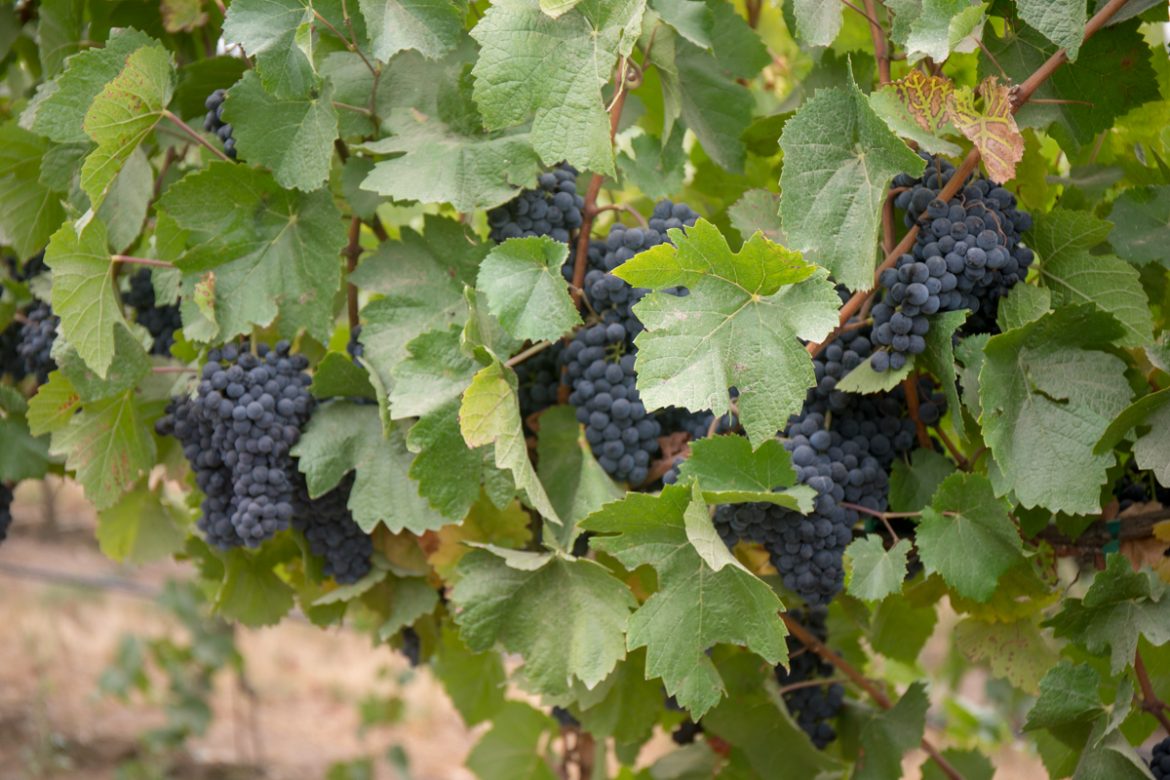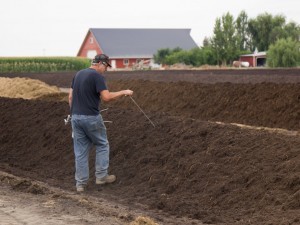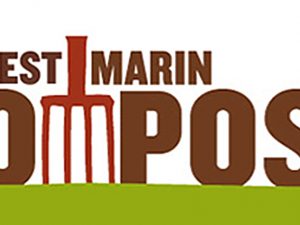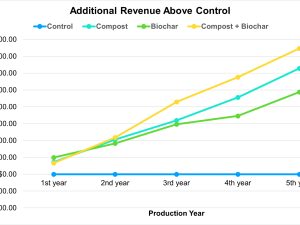
Pacific Biochar contributed to a field trial several years back that keeps providing great data years out. There is quite a story to tell, and Thomas Skernivitz has done a great job in his article published in Western Fruit Growers Magazine and Growing Produce online. Some key paragraphs are pasted below, and it’s highly suggested to see the whole article if you like this teaser:
Centuries of precedent, dating back to human prehistory, support the soil benefits of biochar. But it is the last two years that have really sold Doug Beck on the agricultural perks of terra preta, or the “dark earth.”
Beck, a Ph.D. soil scientist with experience across four continents, has spent the last four growing seasons in California monitoring a Salinas Valley-based trial to evaluate the impact of biochar and compost as soil amendments for wine grapes. Several factors are being assessed in an 8-acre block of newly planted ‘Pinot Noir’ vines, including vine growth, water use, yield, and fruit quality.
With two harvests (2019 and 2020) documented, the Oasis Vineyard trial is showing significant increases in yield with each of three treatments — biochar alone, compost alone, and a combination of them. Of importance, all three treatments have attained this success while receiving the same irrigation regime throughout the trial. This demonstrates improved water-use efficiency where the soil has been amended.
…(and more)…
The biochar-only treatment increased fruit yield on the fourth leaf in 2020, as it had in 2019, by a little over 1 ton per acre, while the compost-only treatment increased yields by 1.8 tons per acre. The compost-plus-biochar treatment increased yields even more, by 2 tons per acre.
“There were no differences in cluster size or cluster weight in either harvest,” Beck says, “but cluster numbers did differ and basically accounted for the yield differences. The biochar treatment had the highest number of clusters in 2019, and the compost-biochar mix had the most clusters in 2020. More clusters looked to be the result of larger, more vigorous vines, especially in the 2020 harvest.”
With regard to water use, the California Department of Water Resources, which funded the trials, was looking for decreased water use in the trial. What actually occurred was greater water-use efficiency in some of the treatments. “By that, I mean that, for the same amount of applied water, more fruit was produced,” Beck says.
Wanting to be sure there were no negative impacts from biochar on fruit quality, the trial analyzed 300 berry samples from each of the 16 sub-blocks to determine statistical differences. “We confirmed that biochar did not negatively affect grape quality or time to harvest,” Beck says. “There were, in fact, some hints that grape quality may have been improved, and we’re anxious to look at this in the future.”
Biochar Bottom Lines
The total biochar cost was $200 per ton or $2,000 per acre, Beck says. The yield increase in the third leaf, the first year of production, was 1.3 tons per acre. At a grape price of $2,000 per ton, that’s additional revenue of $2,600 per acre.
“That’s a $600 profit above the biochar costs, so you paid for the biochar with year-one yield,” Beck says. “At harvest in 2020, biochar again yielded about a ton more per acre than the control, giving an additional income for the two years of about $2,600 per acre. If you assume only 0.5 tons per acre increase per season from a single biochar application over future years, then the extra income becomes quite attractive.”






